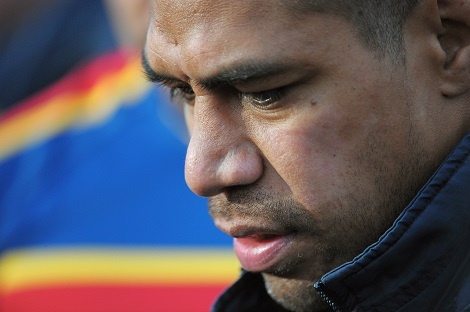- Rugby Toolbox
- Resources & Education
- Learn more
- Articles
- Snook on Coaching
- The Mental Approach
- Ruck & Run Drill
- Playing Philosophy – Ruck & Run Coaching Components
- Playing Philosophy – Spread the Forwards
- Playing Philosophy – A forward behind the ruck
- Playing Philosophy – Ruck & Run
- Playing Philosophy – An idea!
- The Breakdown
- Building Positivity [3]
- Building Positivity [2]
- Building Positivity
- Fitness and Game Related Activities
- Getting the Head Working
- Missiles are Dangerous
- Use of Video
- Winger Attacking Outside First-Five
- Player Profiling
- Selection
- Fitness Away from the Team Session
- Playing Philosophy (Pre season Prep)
- Coaching the Coaches
- The Rugby Coordinator and Pre-Season Preparation
- Why Not Use Tap Penalties More Often?
- Why Kick the Ball Down the Middle of the Field?
- Defending the 5 Metre Lineout Drive
- Scoring from the 5 Metre Lineout
- What are the Kicking Team Aiming to Achieve from Halfway Restart
- Should We Practice Scoring Tries?
- Team Culture
- Looking After Your Players
- Coach Survival Tips
- Under 11/13 – Backline Defence
- Under 11/13 – Ruck Defence
- Under 11/13 – Back Attack
- Under 13 – The Counter Attack
- Under 11/13 – The Maul
- Under 11/13 – Lineouts
- Under 11/13 – Decision Making
- Under 11/13 – Support Play
- Under 11/13 – Dive Pass and More
- Under 11/13 – Drop & Grubber Kick /Highball Catch
- Under 11/13 – Front on Tackling
- Under 11/13 – Contact – Getting Up – The Ruck
- Under 11/13 – The Coaching Session
- Under 8/10 – Using Space
- Under 8/10 – Kicking
- Under 8/10 – Contact and Picking Up the Ball
- U8/U10 Draw & Pass and Sidestep
- Under 8/10 – The Tackle
- Under 8/10 – The Coaching Session
- Under 7 – Test Your Coaching – Support Play
- Tap Pass and Swerve U7
- Ball Familiarisation; Passing & Receiving
- Activities for the Non-Contact Tackle
- Under 7 – The Coaching Session
- Coaching Teenagers – After the Ruck
- Coaching Teenagers – The Practice Session
- Coaching Teenagers – Best Practice
- Coaching Kids – Best Practice
- Plays from a Tap Penalty
- Running Plays from a 5 Man Lineout
- Driving Plays from a 5 Man Lineout
- Strike Plays at the End of the Lineout
- Back Strike Plays at the Lineout
- Wide Strike at the Scrum (2)
- Wide Strike at the Scrum
- Midfield Attack at the Scrum
- No 8 Plays at the Scrum (2)
- No 8 Plays at the Scrum
- The Cut Out Pass
- Skills to Penetrate (2)
- Skills to Penetrate
- Movements to Penetrate
- Patterns to Penetrate
- Contact and Continuity
- Keeping the Ball Alive Out Wide
- Pre Season Support Activities
- Checklist
- Understanding the game
- The Playing Philosophy
- The Lineout
- Overview
- Team Profile
- Start Now!
- Backrow
- Nine and Ten
- Rugby-related Fitness Activities
- The Psychological Edge
- Open Field Play
- Key Performance Indicators
- Improving Team Performance
- Backline Attack Concepts
- Tactics at Phase Play
- Playing Philosophy
- The ‘Stop Focus’
- Kick Attack
- Clearing the 22
- Wide Attack at Phase
- Player Focus
- Scrum Preparation
- Lineout Preparation
- Back Attack Preparation
- Sevens Preparation
- Sevens Kick Offs
- Sevens Scrum and Lineout
- Sevens Attack Patterns
- Sevens Defence
- 7's Selection and Game Planning
- Coaching and Leadership
- How the Game Evolves
- Changing Within the Game
- Learning from the Television.
- Using Tap Penalties Wisely
- Defence Drills
- Defence Drills for Tight Five
- Team Defence and TUB’ing
- Establishing Patterns from the Ruck
- Structured Phase Play
- Structuring Phase Play on the Run
- Coaching Roles
- Structuring a Close in Tackling/Defensive Session
- Coaching in Threes
- Attacking Back Play
- Kick Off Chase
- Wrap Around Back Plays
- Lineout Plans
- Looking and Learning
- Motivating Your Players
- Scrum Attack
- Refocusing the Team
- Monitoring the Progress
- Learning the Game
- Playing to the Laws
- Small is OK
- Decisions After the Tackle
- Improving Your Coaching
- Food for Thought
- More Food for Thought
- Passing & Catching
- How Ireland Nearly Beat the All Blacks
- The Progressive Coach
- Try Something New
- Encouraging Excitement
- The Mental Approach
- Where to Start
- Being the Best You Can Be
- Off the Ball Decisions
- Lineouts Difficult to Master
- Decisions on the Run
- Rucking and Rolling
- A Successful Approach
- Gaining Clarity
- Manipulation vs Physicality
- Beating the Drift
- To Ruck or Not to Ruck
- Stopping the Lineout Drive
- Fine Tuning the Planning
- It's a Running Game
- RugbySmart 2015
- Using the Shoulders
- Loosehead Prop / Tighthead Prop
- Position Specific – Hooker
- Position Specific – Lock
- Position Specific – Blindside Flanker
- Position Specific – Openside Flanker
- Position Specific – No 8
- Position Specific – Halfback
- Position Specific – First Five Eighth
- Position Specific – Second Five Eighth
- Position Specific – Centre Three-quarter
- Position Specific – Wing
- Position Specific – Fullback
The Mental Approach

The Mental Approach
I had an interesting early morning listening to sports psych guru Gary Hermansson a recently. Hermansson was in town as a member of the Central Districts Cricket coaching team and obviously had his hands full at the time. In this science that deals with so many variables there are never any guarantees.
A first class rugby player and cricketer himself, Hermansson introduced the mental side of the game to the Manawatu rugby squad in the early 1990’s under the coaching of former All Black Mark Donaldson.
It was more of a ‘dabble’ in those days, as many individuals saw it as a sign of weakness if they were being helped by a psychologist and it certainly wasn’t the way things were done in New Zealand.
Of course, the mental world is far more accepted and recognized as an important part of a player’s armoury these days with many players believing that this can be the defining focus that determines success or failure.
For rugby players at almost every level it is a matter of getting really fit so that the confidence is in place each week. All Blacks of yore were generally regarded as fitter and so mentally stronger than any opposition and sevens legend Sir Gordon Tietjens bases his sevens coaching on this theory.
However, with the advent of professional rugby all teams have ample time to develop fitter and stronger individuals so the physical edge is now only one aspect of all that is necessary to produce a well rounded rugby player. The modern athlete receives coaching input in the technical, tactical, psychological, nutritional and even social aspects of the game and if those providing the input don’t get it right then there can be an even greater potential to stuff things up.
So where the likes of the New Zealand Super Rugby do franchises, the Chiefs apart, head to now after indifferent beginnings to their seasons?How do they replicate what the Chiefs are doing and what part does the psychological aspect play in this?
In all honesty the squad make ups are not all that different from one another with the Crusaders, Hurricanes and Blues all possessing any number of All Blacks or potential All Blacks, and the Highlanders in possession of a few high calibre key individuals, so why do unheralded players at the Chiefs play at a higher level than similar ability players in other franchises.
‘Belief’ is the key ingredient. There can be little doubt that the players at the Chiefs have a great deal of confidence in their coaching staff and that the coaching staff are able to act with certainty because they possess inner belief in their abilities.
This has created a sound platform from which to start for every player. They have clarity of direction and individual requirements, they trust those around them, and hence they are well on the way to being mentally strong. Mentally strong players make good decisions and are decisive in their actions.
Outwardly all coaches and players possess this confidence, but in all reality there is conflict in the mind of those who are not playing well and losing a lot. Part of the answer is in controlling the mind by managing it with certain techniques which need to be practiced regularly, with the aim of becoming calm and focused.
At junior level just talking positively, offering encouragement and having fun at training is a first step in preparing the player to be mentally strong each week. As players move up through the grades and are required to remember more game plans and personal requirements, things that may make them tentative and nervous, teaching the player to breathe and stay calm so that he is focused on what he has to do next and not worry about his mistake could be a first step. The main idea is that the player is not to worry at all.
There are many ways of managing the mental coaching side of things and the introduction of this can be a lot of fun for the coach as he reads and studies the processes and drip feeds his charges who will be excited by learning another method of improving their game.
Keep an eye on the half time breaks in Super Rugby and see which players and coaches are focused and which ones are over aroused or under aroused.It’s interesting stuff.There’s a new world out there.